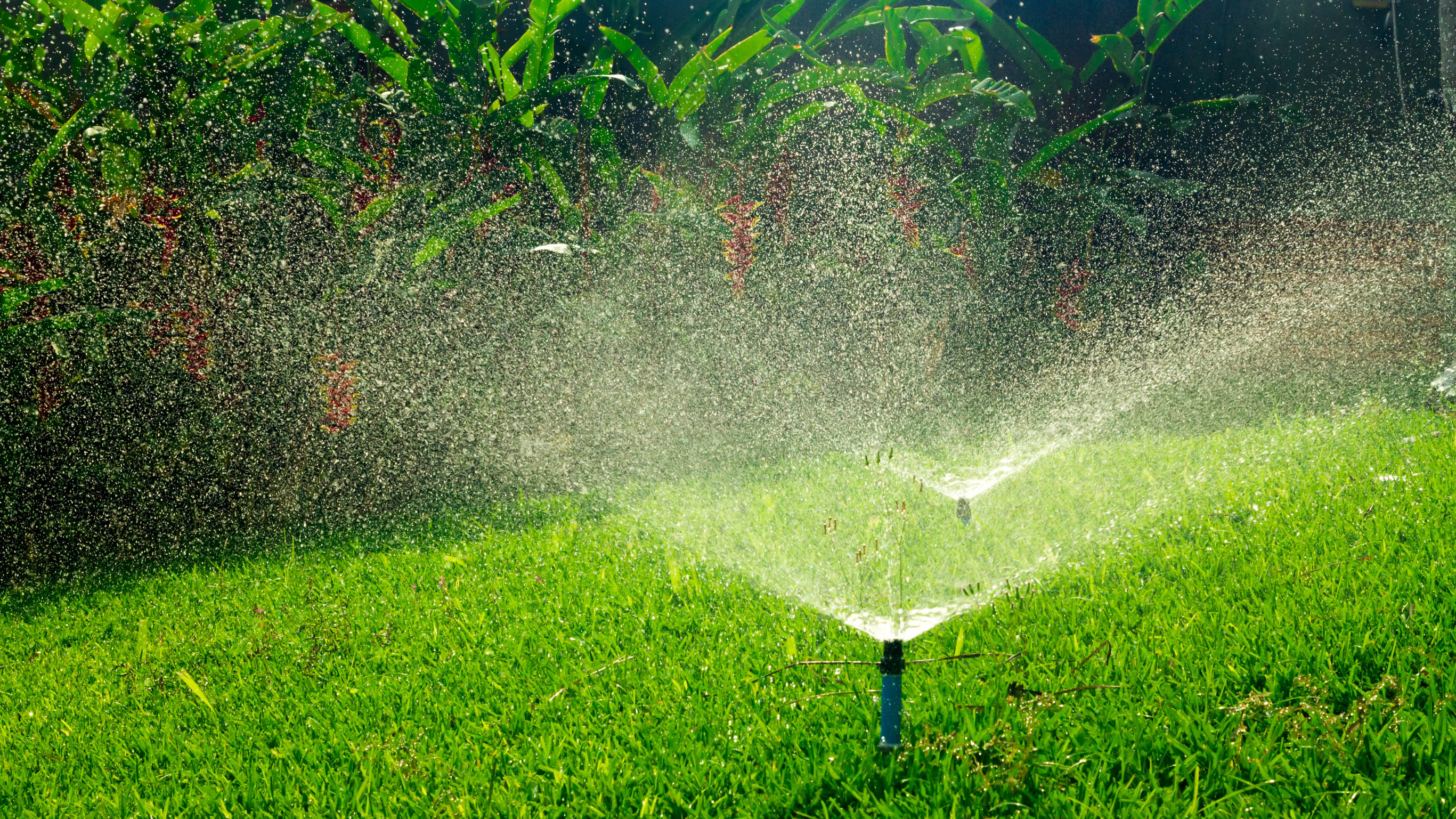
With temperatures as hot as they are, our lawns need all the help they can get. That means taking the time to mow it, apply fertilizer as necessary, and of course, water it regularly. The trouble is, we’re so busy over the summer that it can be difficult to find a time to do this that’s convenient. Add to that, with the summer heat, our precious water seems to evaporate before it’s made an impact.
Because of this, watering your lawn at night can become an attractive prospect. Views on this habit are mixed though, with some saying it’s allowable in moderation, and others outright advising against it because of the potential consequences. So we asked the experts for their take on this matter, to find out where the line is on watering your lawn at night. We will consider the benefits as well as the drawbacks so we can finally put the question to bed or whether it’s ok to water your lawn at night.
The appeal of watering at night
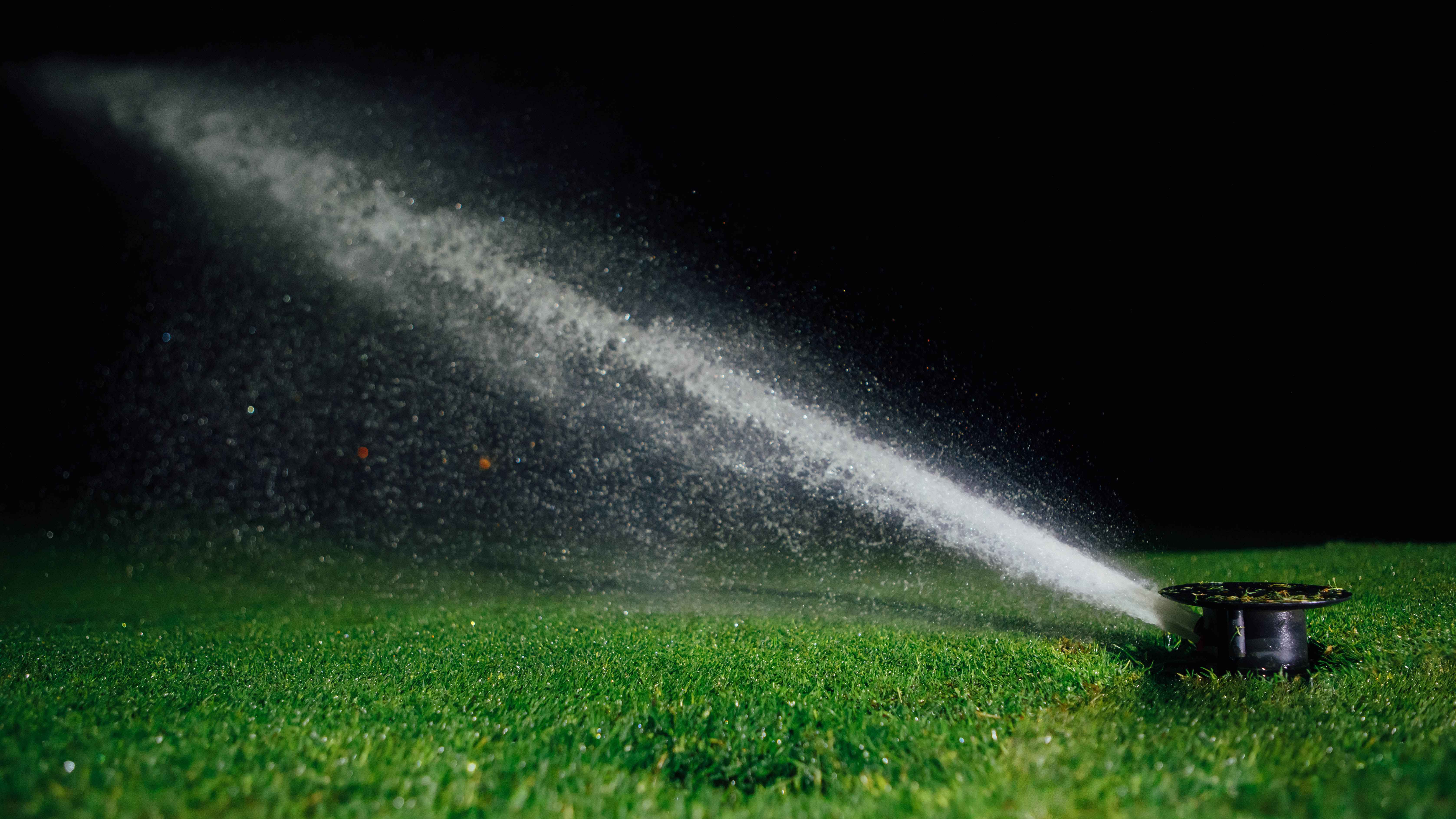
As mentioned above, watering your lawn in the night versus the day can be more convenient. This is especially the case if you need to water by hand or prefer to be at home during the process. If you plan to use your yard on a certain day, it won’t work for the sprinklers to run beforehand either, so our schedules can affect the timing too. It’s ultimately less disruptive to water your lawn at night, because it’s out of sight, and out of mind.
Then there’s the cost of water to consider. With bills as high as they are, we’re all looking for ways to save water this summer. And if you water your lawn during the peak hours of the day, you’re no doubt losing a lot to evaporation, both during application and as it sits on the ground, especially if you’re using a sprinkler vs hose. With temperatures cooler in the night, there's inevitably less water waste with more time for it to soak in.
There’s indeed benefits to watering your lawn at this time, and some experts see it as no bad thing either, so long as it’s done in moderation.
"Watering your lawn at night is actually a great idea," Chris Bonnett, founder of GardeningExpress.co.uk, says. "The strongest sun has disappeared, which means your plants will be able to soak up the water without it drying out too fast. You’ll just want to make sure you don’t get it too wet, as that’s when problems can occur."
These problems can lead to some serious damage, which is why there are concerns around this timing. The problems are as follows:
Problems when you overwater at night
1. Promotes disease
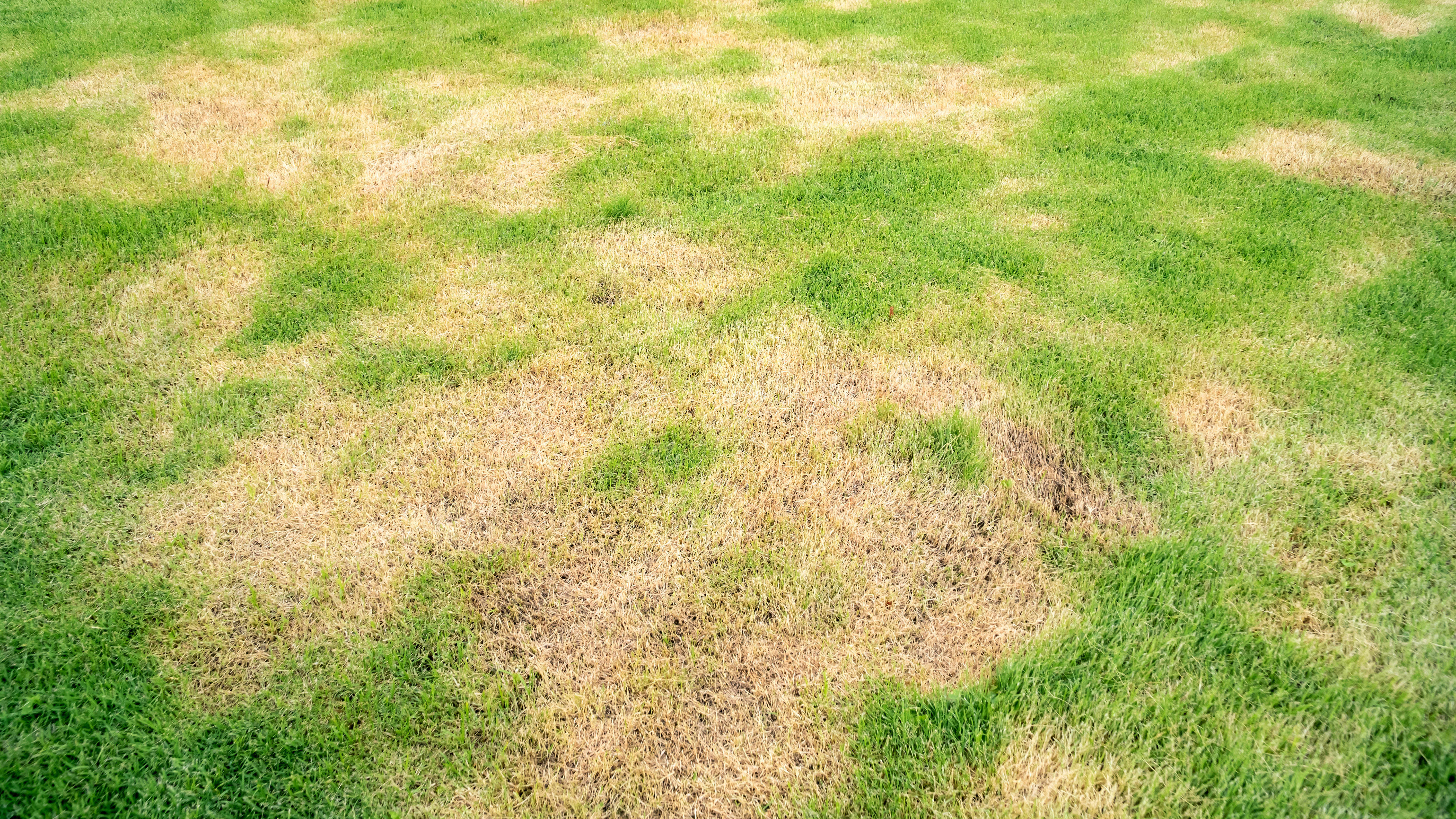
Firstly, with temperatures lower at night, water takes longer to evaporate. That means your lawn is exposed to moisture for a prolonged time, which can encourage disease, fungal growth and plant rot.
"Over-watering at night can lead to fungus growth which can damage your garden and harm any surrounding plants," Bonnett says. "Apple cider vinegar and water can help clear up patches of growth such as leaf spots and powdery mildew, but if it doesn’t start to disappear it’s likely they’re ruined for good."
All kinds of disease and fungus can pop up when a lawn is overwatered at night, and each can leave its own trace. Discoloration might occur, or a physical substance may appear on the surface. It will inevitably deteriorate the health of your lawn, and lead to dead patches of grass and expensive repairs.
"There are several lawn diseases that homeowners might encounter after prolonged nighttime watering, most of which lead to patchy lawns," Erin Schanen, Troy-Bilt gardening partner, master gardener volunteer, and creator of The Impatient Gardener, says. "Dollar spot creates bleached patches that can be a few inches to a foot in diameter. Fairy rings show up as rings or arcs of dark green grass surrounded by dead turf, occasionally with mushrooms growing in it."
Should you suspect disease is taking hold, you should identify it and address it as soon as possible. A fungicide may be required as part of its removal. Tackling disease early on is key to its removal. Here are 7 ways to get rid of mushrooms in your yard, if fungi is proving to be a problem.
2. It encourages pests
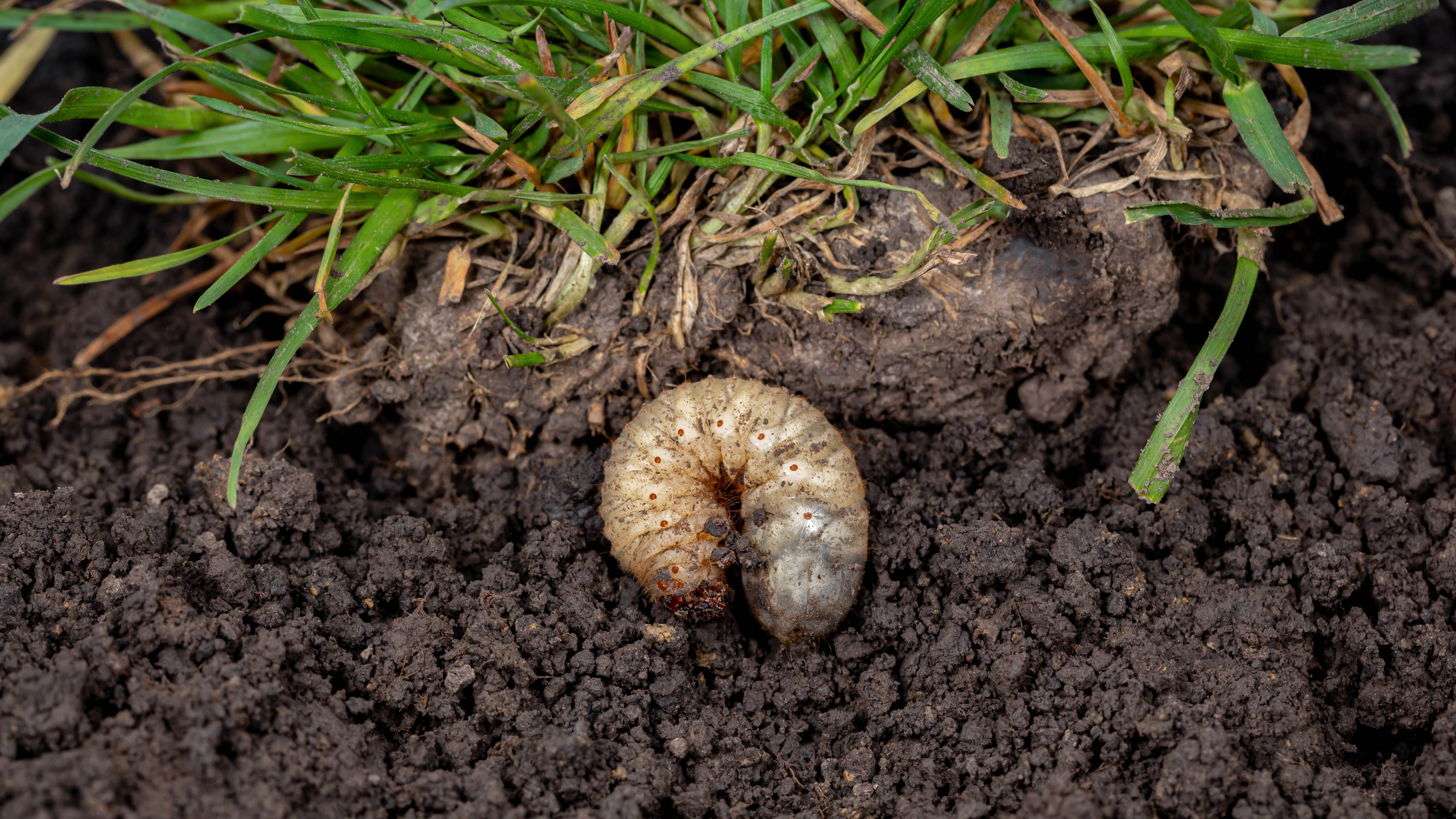
An overly wet yard at night can encourage pests as well. Thatch (a layer of dead plant matter on the soil’s surface) will struggle to break down in such circumstances, which offers a thick shelter to many pests — ideal to keep them out of sight from predators. Other pests are naturally drawn directly to the moisture too; mosquitoes are attracted to standing water to lay their eggs for instance. But, many pests simply need water to survive, just as we do. That’s why roaches and ants will often flock to areas of high humidity in our home. So a lawn which remains wet for a prolonged time is a big attraction to all kinds of pests.
Should pests become abundant in your yard, you will need to address the problem immediately. Some can cause excessive damage to your lawn, leaving bare patches of soil behind. The best method for removal will likely come down to the specific species. However, insecticides are widely available to help with any infestations. If you suspect the source of the problem is damp conditions, you will need to adjust your watering routine accordingly moving forward.
3. Deters grass health
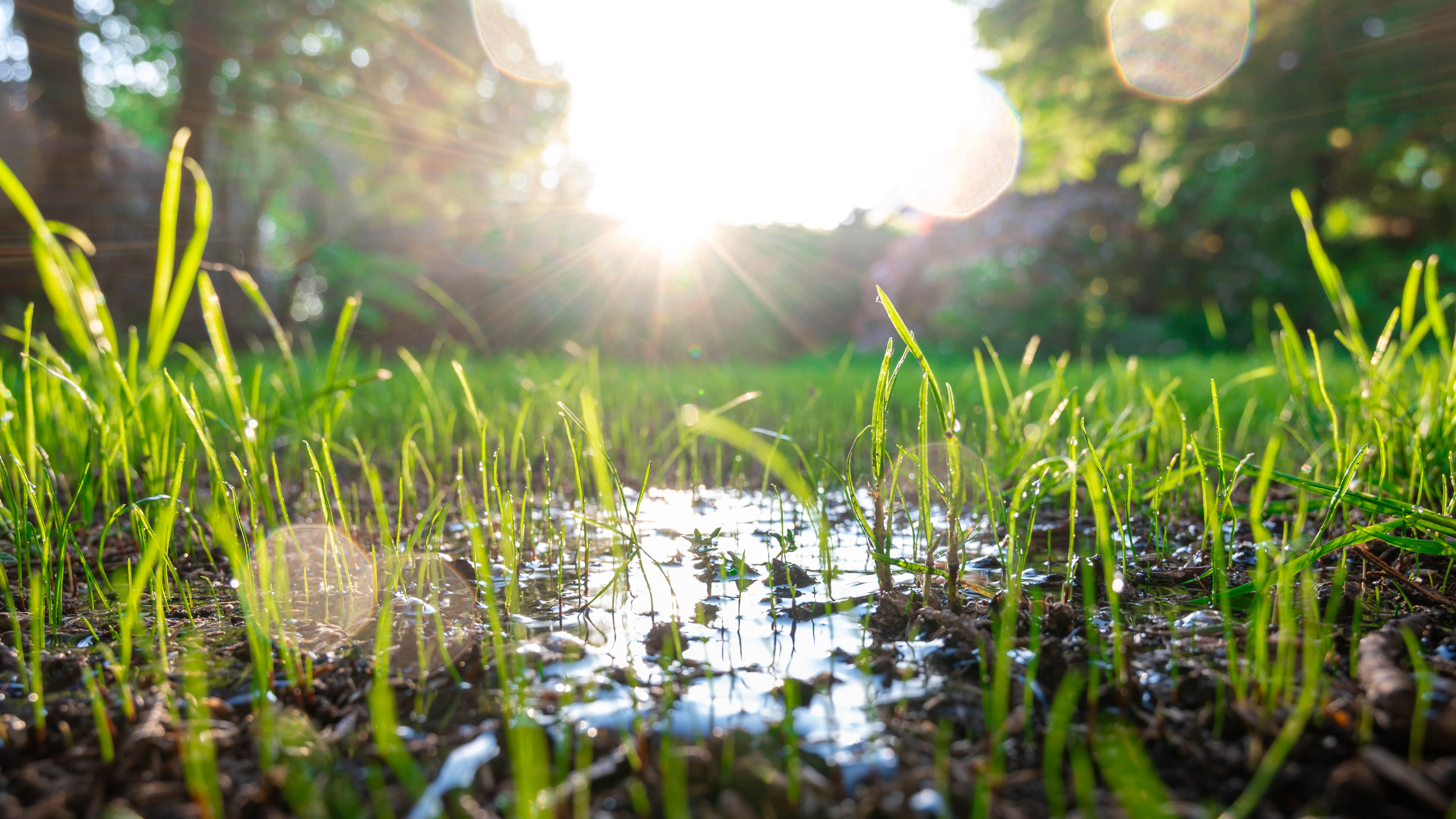
Ultimately, even if you manage to avoid these pests and the majority of disease, your grass health will deteriorate if it’s watered at night and over-exposed to moisture in the process.
"Watering at night is not a problem," Bonnett says. "It only becomes an issue if your lawn is prone to flooding and poor drainage. You need to monitor carefully how much you water and spend time improving drainage."
So the acceptability of watering your lawn at night comes down to how much water you apply, and the quality of your yard’s drainage. If your soil is waterlogged, it can lead to root rot, which is a common fungal disease. This develops where roots are overexposed to moisture — it will cause the grass to yellow at first, eventually killing it. This can be quite confusing, because yellow grass can also indicate dry conditions, so we often end up watering more and worsening the problem.
On top of that, with more moisture in the soil in general, there’s less oxygen for your roots to access, so you’re essentially suffocating your lawn if you’re not careful.
When should you water the lawn?
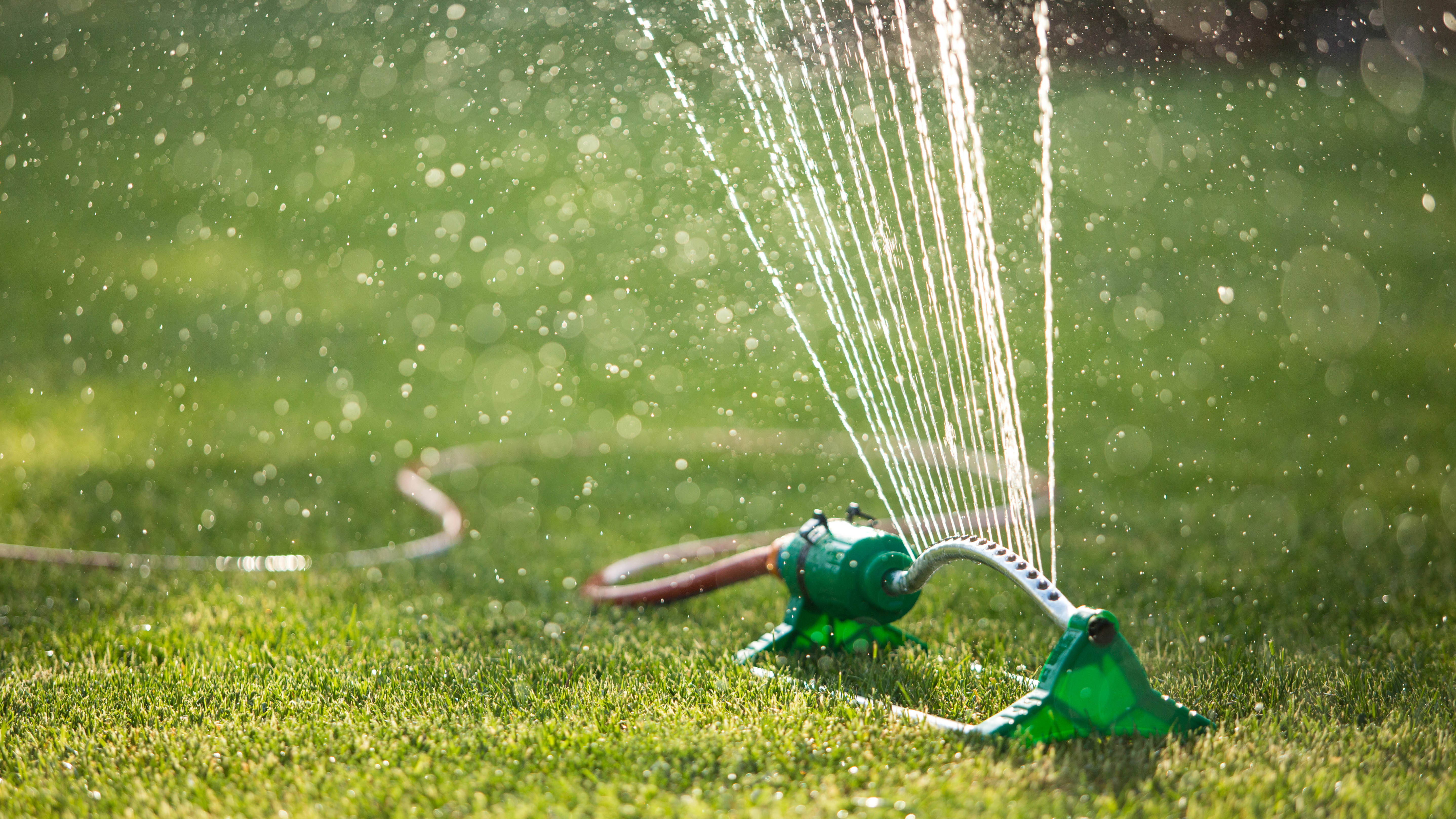
As mentioned earlier, the majority of our experts were generally in agreement that you can water your lawn at night, so long as it’s infrequent, controlled and in moderation — essentially, don’t overdo it. But, if you’re concerned about your yard’s drainage, or want to avoid these potential problems at all costs, there are alternative times which will also work.
The best time to water your lawn is in the morning — before about 10 a.m., advise the landscaping experts at Toolstation. "Lots of people think watering plants in full sun can scorch them, but this theory has largely been disproven. We also wouldn’t advise watering in the middle of the day because it’s less effective. During the hottest part of the day, lots of water will be lost to evaporation — a waste of both water and effort!"
On the other hand, Erin Schanen suggests that "if you can wrap up watering by early evening the grass should have enough time to dry off without causing a problem. Keep in mind that fungal problems and diseases caused by water sitting on grass are more likely in places with high humidity, so timing will certainly vary from place to place."
So it seems that early morning or early evening are the best times during the day itself. That way the water has enough time to absorb before the heat of the day, or dry before the night.
What should you do if you’ve overwatered at night?
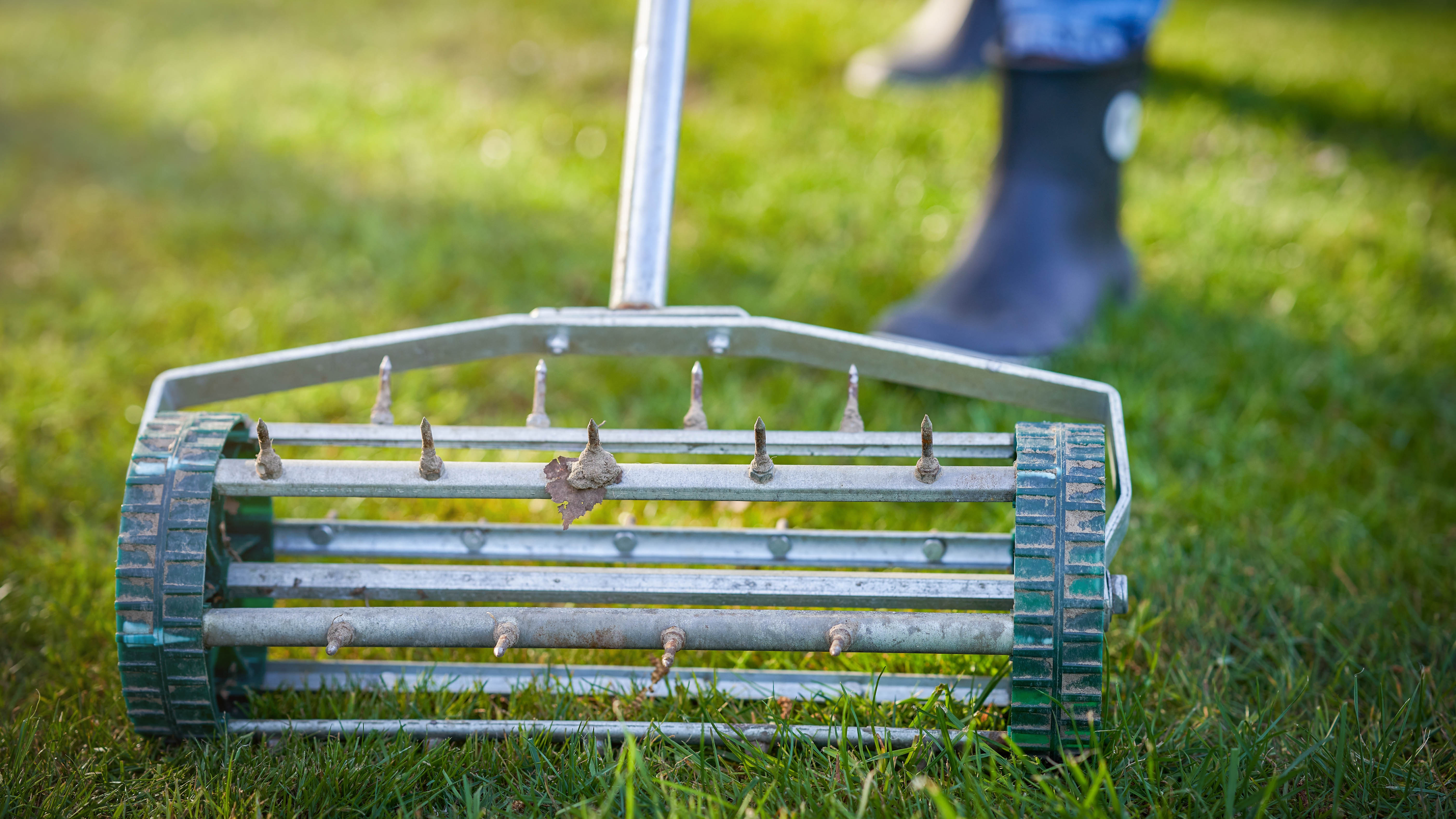
If you’re concerned that you’ve overwatered your yard at night, there are some steps you can take.
"If the lawn appears healthy with no signs of problem, don’t worry about it, but change up your routine to avoid it whenever possible," Schanen says. "If you are seeing problems, attempt to diagnose the issue, perhaps by reaching out to a local university Extension. Some issues can be rectified by aeration or nitrogen applications in addition to changing the watering schedule."
A one-off overwatering shouldn’t lead to extensive problems, it’s more of an issue if you make it a habit. If you notice disease, pests or deteriorating grass health, it’s worth checking the moisture conditions and adjusting your watering routine if necessary. Alternatively there are changes you can make to your yard to improve drainage, such as aeration.
Ultimately, watering your lawn at night won’t cause extensive damage, so long as it’s not overwatered, or applied too regularly. Our grass is in desperate need of moisture at this time of year — and watering at night can help save on our bills. Though some feel it should not be a recurring habit.
"Watering a lawn at night is not optimal because it can lead to excess moisture sitting on the grass, rather than soaking the roots, which is what your lawn needs," Schanen continues. "This excess moisture can lead to fungal problems and other diseases. That said, the occasional nighttime watering is unlikely to cause issues, but you shouldn’t make a habit of it or set automatic sprinklers to run at night."
Your lawn watering routine comes down to you at the end of the day. You can apply it at night should you wish, but you must take care to ensure you’re not overdoing it, and so encouraging pests and disease. It’s likely safer not to make it a recurring habit, and stick to watering in the early morning or evening for your predominant schedule.







